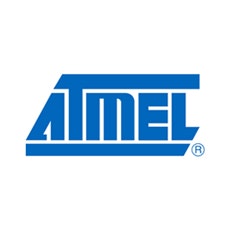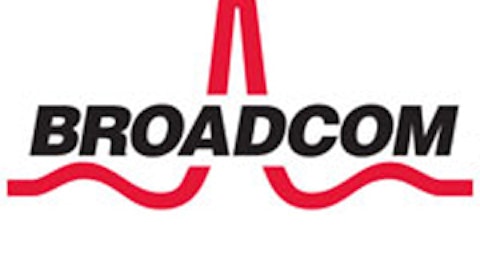
But, true to its character, Atmel Corporation (NASDAQ:ATML) yet again proved that it cannot stick to one path. In its recently released second quarter results, Atmel beat revenue estimates by a hair and matched earnings expectations, but failed to capitalize on the decent results by offering a shallow outlook.
Inconsistency continues
The results were also not impressive if we go for year-over-year comparisons. Atmel Corporation (NASDAQ:ATML)’s revenue has been on a decline and it fell 5.5% from last year to $348 million in the quarter. Similarly, adjusted earnings per share also came in lower at $0.06 from $0.08 last year. Add to that a shallow outlook, which Atmel blames on its largest customer ramping down production of its flagship product (think Galaxy S4), and it looks like investors have a good reason to be disappointed now.
Atmel Corporation (NASDAQ:ATML) is looking at revenue between $348 million and $365 million in the third quarter, below the consensus estimate of $363 million. If Atmel does manage to achieve this estimate, it would again report a decline in sales on a year-over-year basis.
This means the company isn’t expecting much growth on a sequential basis either. But, with sales of the Samsung Galaxy S4, for which Atmel Corporation (NASDAQ:ATML) had supplied its touchscreen controller tapering off, one could have expected such an outlook.
What gives?
As Reuters reports, analysts have reduced its estimates for sales of the S4 by 30% as the company is finding it difficult to move more units, leading to overstocking of inventory and forcing Samsung to cut orders. The production ramp up of the Galaxy S4 was the reason why Atmel was able to do well earlier in the year, but with Samsung’s primary weapon out of the game, the going might prove to be a bit more difficult.
But, as always, management is optimistic. The fact that it landed a spot inside the Galaxy S4 Mini and the Galaxy Tab 3 should help its revenue going forward. In addition, Atmel has been waiting on the success of Microsoft Corporation (NASDAQ:MSFT)’s Windows 8. CEO Steven Laub stated over the previous conference call that Windows 8-based systems are moving slowly.
So, I’m not sure of the numerous design wins with respect to Windows 8 models that Atmel boasted of over the previous conference call. Microsoft Corporation (NASDAQ:MSFT) is having difficulty in moving its products and has even resorted to offering kickbacks to resellers who manage to sell certain selected Windows 8 touch-enabled devices, as Digital Trends reports.
Microsoft has been trying various antics to push sales of Windows 8 devices, such as providing Office 2013 for free to Surface tablet buyers and slashing the price of its Surface RT tablet. These are desperate measures by Microsoft to provide a fillip to Windows 8.
I had expected Atmel to benefit from Windows 8 since it was a new business for it, but with sales of touch-enabled Windows devices not being as great as expected, I think it wouldn’t be right to expect Windows 8 to help Atmel.
However, Atmel is still counting on Windows 8-powered Ultrabooks, backed by Intel’s recently launched Haswell chips. But, I’m not sure if Atmel is right in counting on the Windows side of the portable computing spectrum as Haswell might also be powering Apple Inc. (NASDAQ:AAPL)’s MacBook Pro as rumors suggest.
Apple Inc. (NASDAQ:AAPL)’s laptop offering has been crushing Windows-based Ultrabooks. According to NPD (via CNET), the MacBook Air commanded a staggering 56% of thin-and-light laptop sales in the U.S. through the end of May. The rest were Ultrabooks. Now, the 2013 MacBook Air is powered by Intel’s Haswell and this has helped it achieve terrific battery life. So, with Apple’s laptops already bashing Windows Ultrabooks, I think it becomes quite clear why Atmel shouldn’t expect much from a Haswell-powered Ultrabook.
The bottom line
I have been an Atmel bull so far and I was impressed by the company’s design wins. Even I had thought that the proliferation of Android tablets and sales of touchscreen-enabled Ultrabooks would help it get better. I would still like to believe that thesis, but there are stiff challenges going forward and the fact that Samsung’s next blockbuster product is sometime away means that Atmel has now entered a period of uncertainty.
Keeping these factors in mind, it would be prudent for investors to book their gains and move on to better options as there is not much clarity about where Atmel is headed.
The article Why Now Is a Good Time to Sell This Stock originally appeared on Fool.com and is written by Harsh Chauhan.
Harsh Chauhan has no position in any stocks mentioned. The Motley Fool recommends Apple. The Motley Fool owns shares of Apple and Microsoft. Harsh is a member of The Motley Fool Blog Network — entries represent the personal opinion of the blogger and are not formally edited.
Copyright © 1995 – 2013 The Motley Fool, LLC. All rights reserved. The Motley Fool has a disclosure policy.





